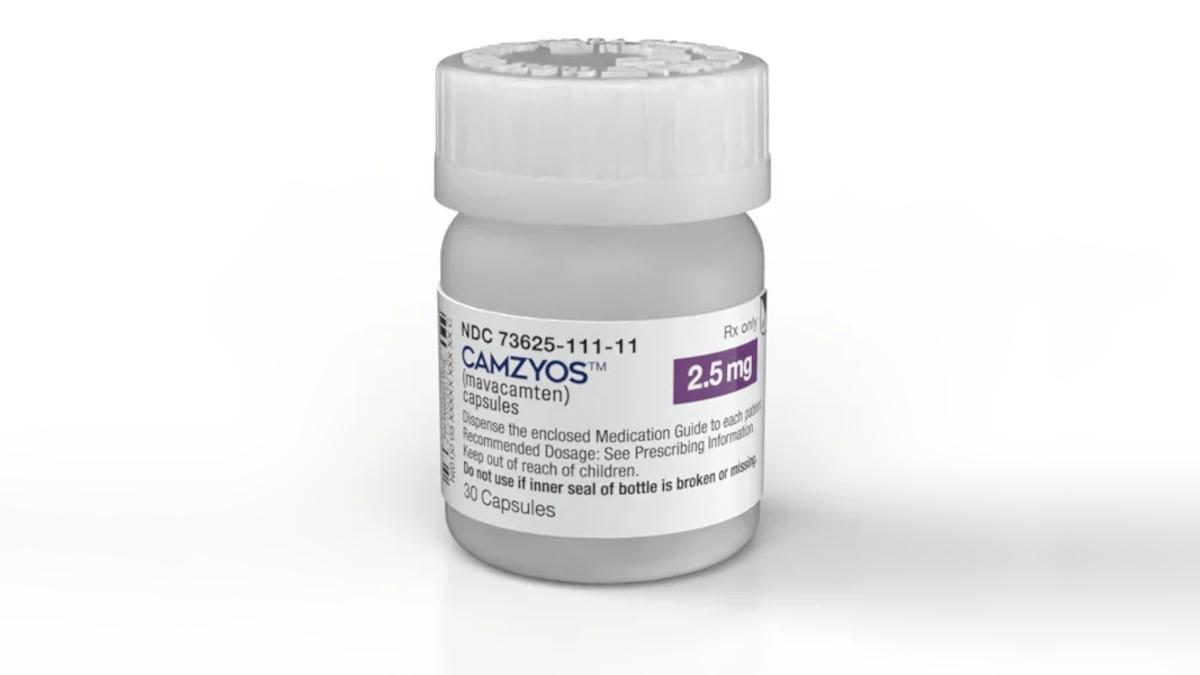FDA kicks off review of Cytokinetics' aficamten for HCM

Cytokinetics' president and chief executive Robert Blum
Cytokinetics should hear back from the FDA next September about its marketing application for aficamten, which is vying to become the first rival to Bristol-Myers Squibb's fast-growing Camzyos for obstructive hypertrophic cardiomyopathy (HCM).
The US regulator has accepted Cytokinetics' marketing application for the cardiac myosin inhibitor, setting a target action date of 26th September 2025 to complete its review and, according to the company, has indicated that it will not need to hold an advisory committee meeting.
That bodes well for aficamten, which is playing catch-up with Camzyos (mavacamten), currently the only FDA-approved treatment for obstructive HCM. BMS' drug was launched in 2022 and saw sales more than double in the third quarter of this year to reach $156 million, driven by strong take-up in the US as well as its continuing rollout in Europe.
The rapid take-up puts Camzyos on course to achieve blockbuster sales. Analysts have predicted that sales could reach $2 billion in obstructive HCM alone, while BMS has said it believes the drug could reach $4 billion if its label is extended to include non-obstructive HCM, for which it is in phase 3 testing.
HCM is generally an inherited disease in which the heart muscle becomes thickened, making it harder for the heart to pump blood around the body. In obstructive HCM the thickened muscle blocks flow from the heart. In non-obstructive HCM, blood flow isn't significantly reduced but the wall of the heart can stiffen, reducing the amount of blood it can hold and sometimes causing rhythm disturbances.
Cytokinetics has suggested aficamten has a competitive clinical profile to BMS' drug – pointing to strong data on exercise capacity, symptoms, biomarkers, cardiac structure and function, as well as favourable cardiac remodelling in the pivotal SEQUOIA-HCM study – which indicate it may have disease-modifying activity. Some analysts agree, suggesting it could become a $3 billion-a-year product at its peak.
In the company's third-quarter results update, chief executive Robert Blum said that aficamten has a "next-in-class safety and efficacy profile" that will help to expand the cardiac myosin inhibitor category and "activate broader adoption."
He also said that the drug has a chance of becoming "the cardiac myosin inhibitor of choice for both physicians and patients."
Cytokinetics is also running the MAPLE-HCM study, designed to position it as first-line therapy in practice guidelines, and ACACIA-HCM in patients with non-obstructive forms of the disease. The former should read out next year ahead of the FDA's decision, while the latter is scheduled to complete enrolment before the end of 2025 and generate results in 2026.
There are no targeted therapies approved for non-obstructive HCM at the moment, and both BMS and Cytokinetics' drugs could see competition from Imbria Pharmaceuticals' ninerafaxstat, a cardiac mitotrope which generated positive results in the phase 2 IMPROVE-HCM study reported at this year's American College of Cardiology (ACC) annual congress.












